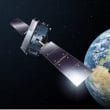Delegitimizing the radicals
By Radwan Ziadeh, February 27, 2014
Many times over the decades, Western officials and analysts have declared the emergence of "a new Middle East." Such declarations have generally turned out to be premature, but today the people of the region are indeed constructing something new. Whether the transformation will turn out to benefit Middle Eastern publics is uncertain, but no one can doubt that the long-term implications will be profound.
In this roundtable, Emily Landau and I have argued that establishing a chemical-weapon-free zone in the Middle East would make a positive contribution to regional security. Mostafa Elwi Saif has argued that banning chemical weapons makes no sense without banning nuclear weapons as well. Disagreement on a point such as this is no surprise. What’s difficult to dispute, I think, is that regional security will remain problematic until governments accept international norms such as the norm that forbids the use of chemical weapons—and until, more broadly, governance in the region is liberalized. Only when nations demonstrate greater respect for representative government, the rule of law, and the integrity of human life can the Middle East’s enduring security challenges be addressed.
Syria, my own nation, demonstrates the consequences of failure to pursue such ideals. There, an already brutal civil war has been complicated by the actions of foreign non-state actors such as the militant Shiite group Hezbollah and the radical Sunni organization known as the Islamic State of Iraq and Syria (which was affiliated with Al Qaeda until that group disavowed it in early February). These organizations, though they are rivals in the sectarian sense, have much in common. They adhere to extreme, arbitrary versions of Islam. They espouse ideologies focused on hatred of, and a desire to eliminate, those who do not share their points of view. They reject all notions of human integrity and other people’s right to exist peacefully. They exhibit an extraordinary level of savagery. And neither group has displayed any compunction about crossing international borders to kill Syrians. But if it weren’t for brutal, repressive regimes such as that of Bashar Al-Assad—regimes that display no respect for the rule of law or for basic humanity—factions like these would not exist.
As the Middle East turns a new page of history, one of its greatest security challenges is to strip radical movements of their legitimacy. Achieving this will require an embrace of liberalism—an embrace of democratization, devolution of power, and respect for basic human values.
Topics: Technology and Security
Share: [addthis tool="addthis_inline_share_toolbox"]














